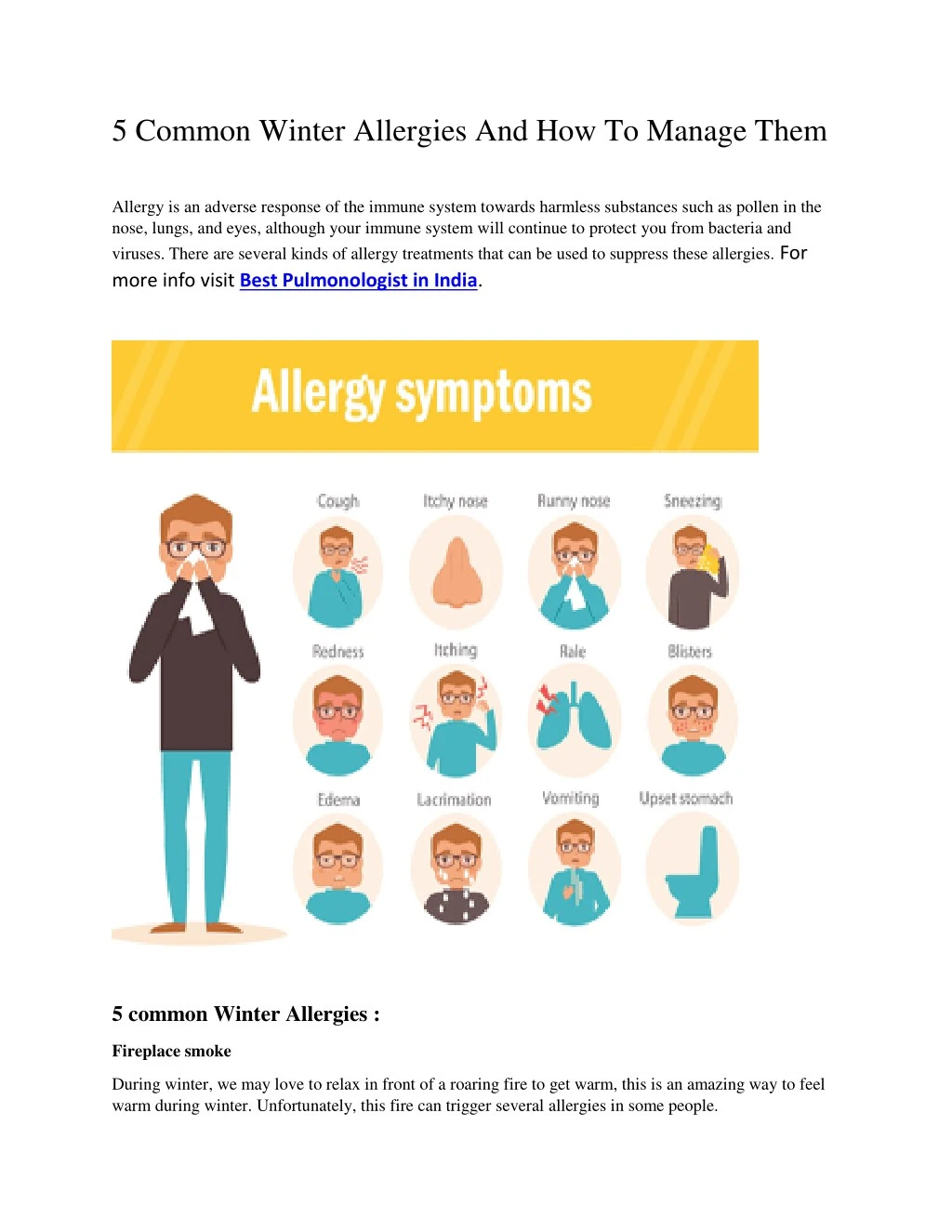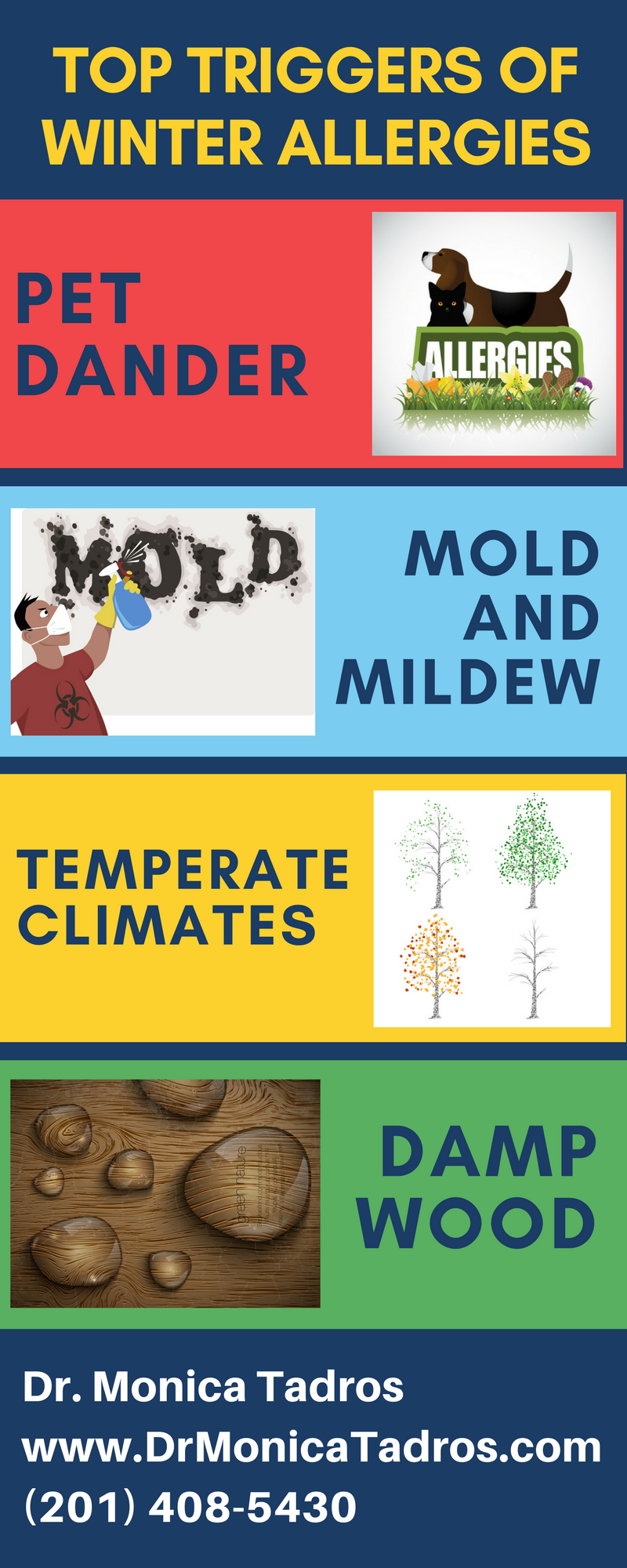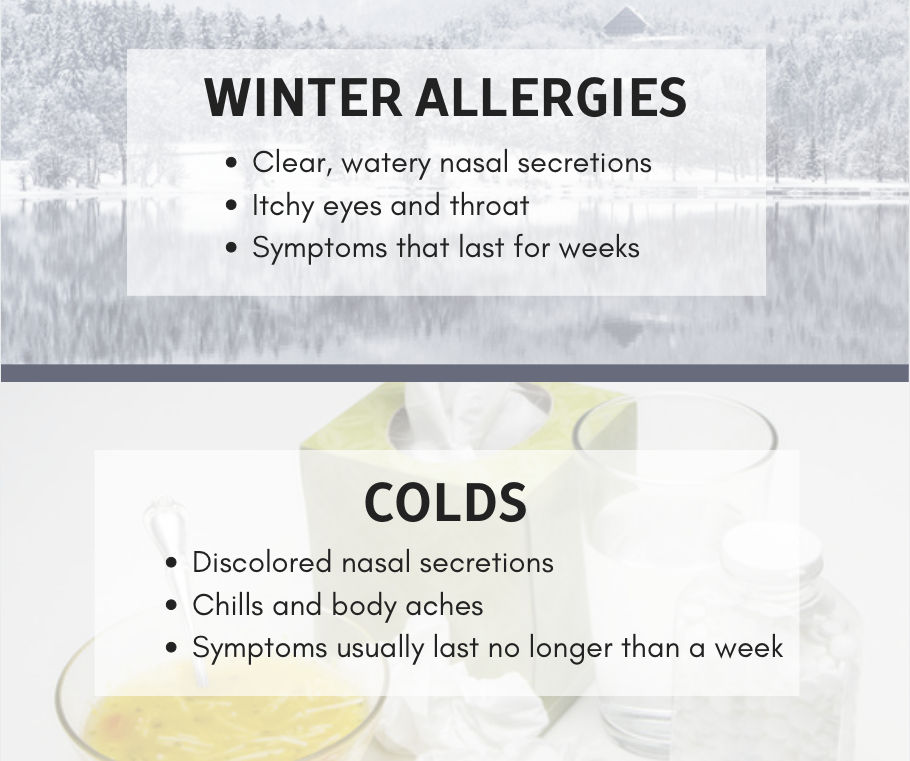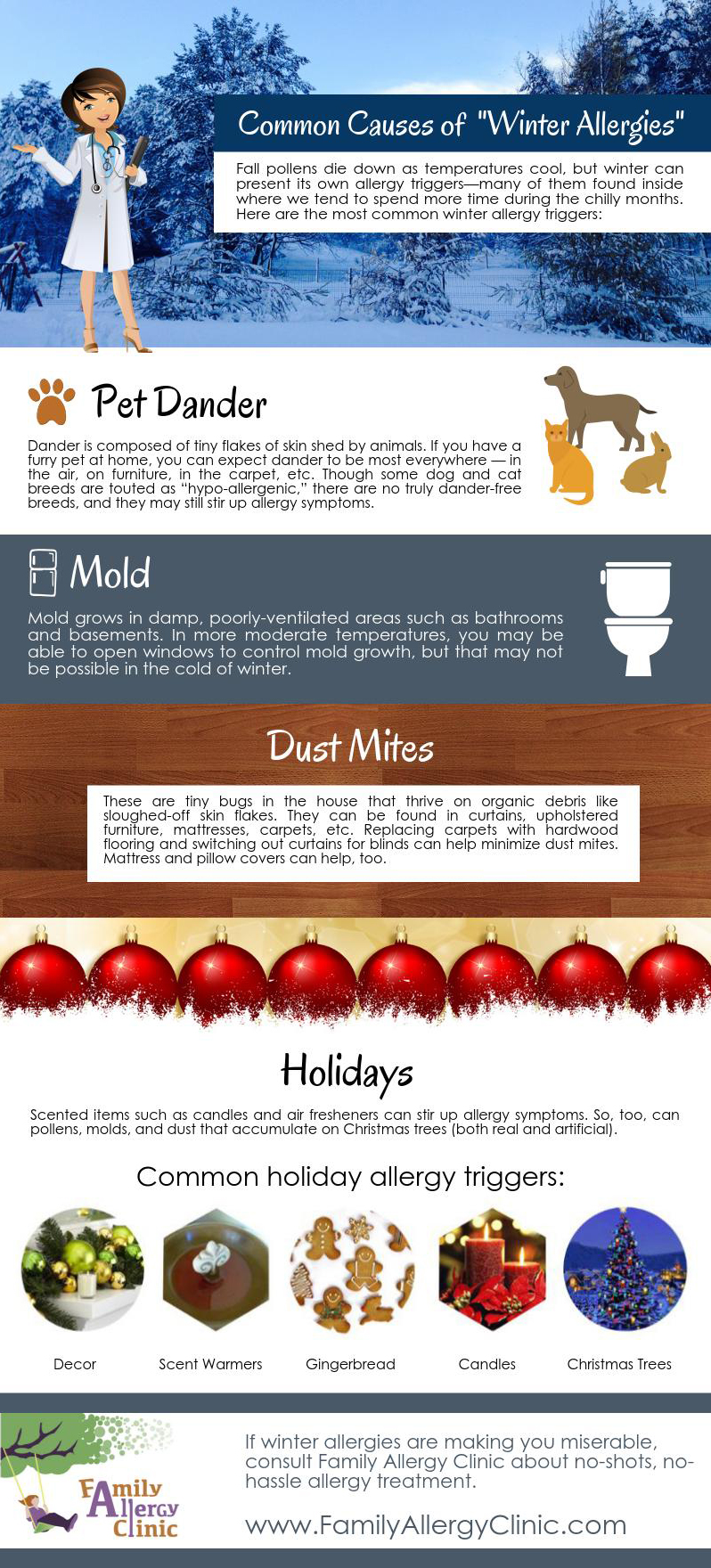Because we tend to spend more time indoors in the winter coupled with the fact that theres usually less ventilation to keep the heat in means that were all exposed to much more dust and animal dander than the rest of the year. They can be found in anything soft around the house.

Ppt 5 Common Winter Allergies And How To Manage Them Powerpoint Presentation Id 7987103
Because people spend more time inside in the winter its more common to experience allergy symptoms from indoor allergens.

What are winter allergies caused by. This is one of the most common types of allergies in winter which can cause cough and stuffy nose. When mold spores get into the air they can trigger allergy symptoms. The first step in identifying if you have a cold vs.
Most trees pollinate from early to mid-spring whereas grasses pollinate at the end of spring and beginning of summer. Pet dander skin flakes that carry proteins mold. During the winter we spend most of our time indoors which makes us more exposed to indoor allergens like animals dander from pets dust mites and mold.
Winter allergies are often caused by mold mildew dust mites animal dander or cockroaches. For those allergic to ragweed this tickling sensation can be triggered by eating melons. On the other hand cold occurs due to the transmission of virus which can spread through tiny droplets in the air when someone infected sneezes coughs or talk.
Learn about the causes of winter allergies including mountain cedar Christmas trees molds and runny nose and hives triggered by the cold. However mold allergies in. Allergies are caused by your bodys immune system and its overreaction to allergens.
Having winter allergies is understanding the differences. These allergens cause infections making the disease communicable. The allergies will manifest themselves with the usual symptoms such as a runny nose sneezing coughing and wheezing or shortness of breath.
Allergic conjunctivitis is not contagious. Itching sneezing runny or stuffy nose and rashes are some of the common symptoms of a winter allergy. Mold Mold can trigger allergies during all times of year but can become more common in winter months when weather becomes wet cold and a breeding ground for mold.
Winter allergies are mainly caused by Pollen that transfers during the winters. When you turn on your furnace to warm up the house these allergens become airborne accelerating exposure to them. However its important to know the difference between allergy symptoms and cold or flu symptoms as some of them overlap.
Winter allergies most often caused by mold and dust mites can heighten when we spend more time indoors specifically during the winter months. However its important to know the difference between allergy symptoms and cold or flu symptoms as some of them overlap. Colds are a result of a viral infection that you pick up from someone else.
Winter allergies are often caused by mould mildew dust mites animal dander or cockroaches. To help you do that WebMD went to the experts and got their tips on what causes the allergies of winter and how you can take control. A true winter allergy this reaction can occur from cold weather cold water and from consuming cold food and drinks.
Because people spend more time inside in the winter its more common to experience allergy symptoms from indoor allergens. Winter allergy occurs when the body releases histamine that creates an inflammatory response to allergens. Dust mites cockroach droppings mold and pet dander are some of the most common causes of winter allergies.
Rhinitis can also be caused by spores produced by mould and fungi. Apart from Pollen several other allergens contribute to winter allergies. Mold can be found both outdoors and indoors especially in places like bathrooms and basements.
These microscopic bugs live in household dust. Top Triggers of Winter Allergies Most winter allergies are. It can happen at any time of the year and the symptoms might last up to several days.
If you change your air filter regularly and keep your house well-vacuumed and dusted you can escape ragweed when youre indoors. Some of the most common indoor allergens that can trigger your winter allergies include. Winter allergies arent necessarily due to there being exclusive winter allergens around but are more likely caused by the increase in exposure to allergens in higher quantities.
While some people experience a minor reaction to the cold others can have a. Tiny particles of pollen produced by trees and grasses can sometimes cause allergic rhinitis.

Winter Is Coming Allergies Too

Winter Allergy Season Approaching Signs Symtoms And Relief

What Causes Winter Allergies Infographic This West Coast Mommy

Top Triggers Of Winter Allergies

Seasonal Allergies Can Be Alleviated With These Foods

What You Need To Know About Winter Allergies Gohealth Urgent Care

Allergy Test How To Tell Between Winter Allergies And A Cold

